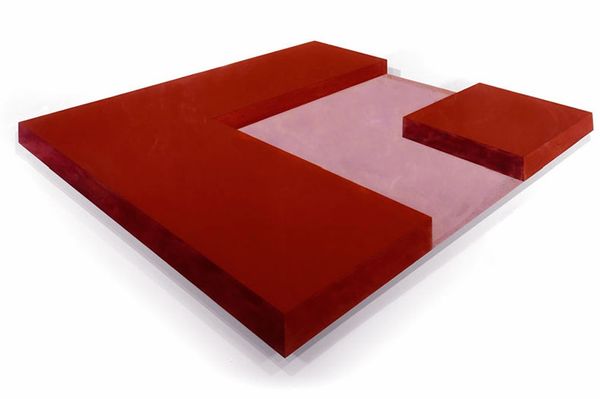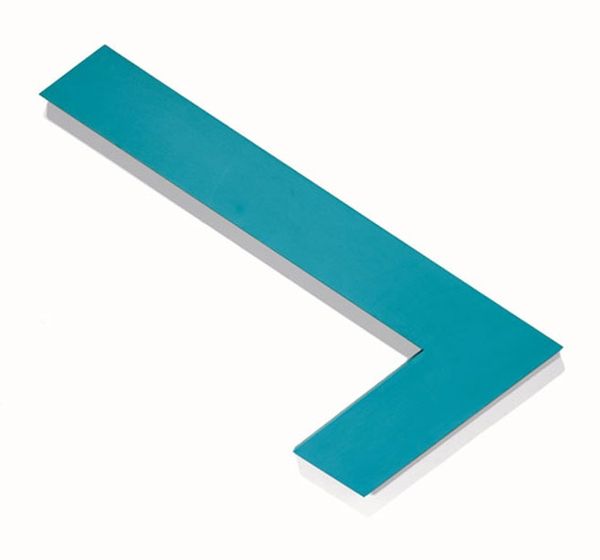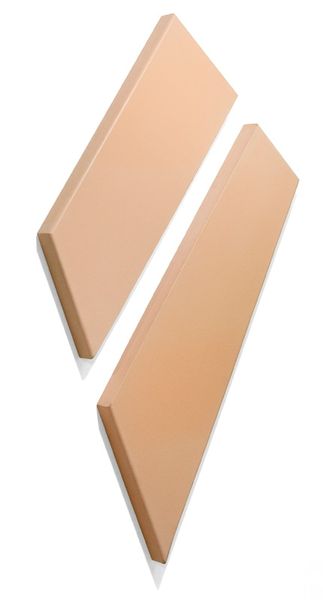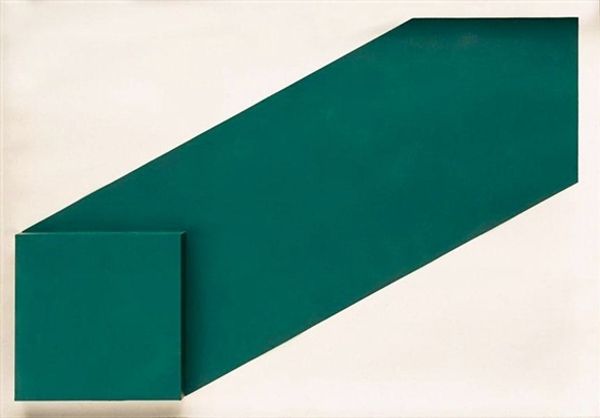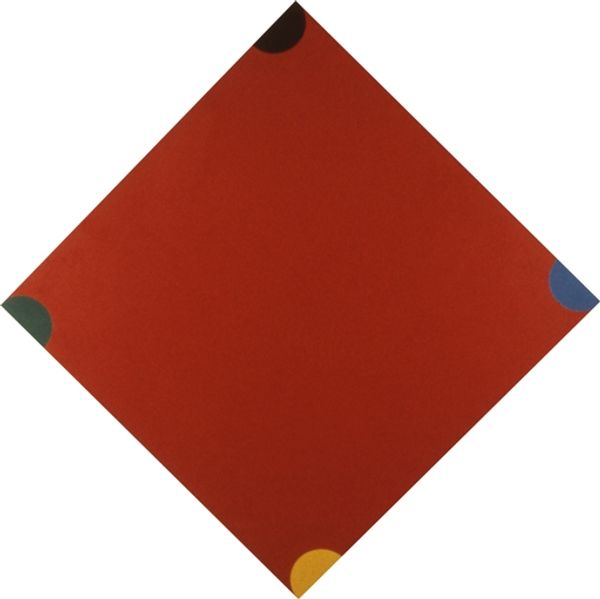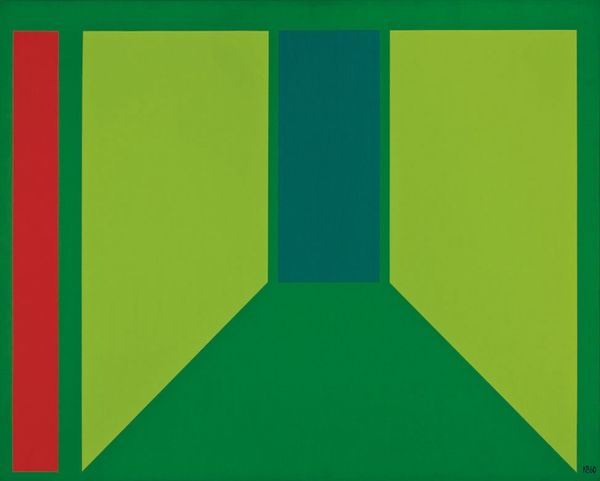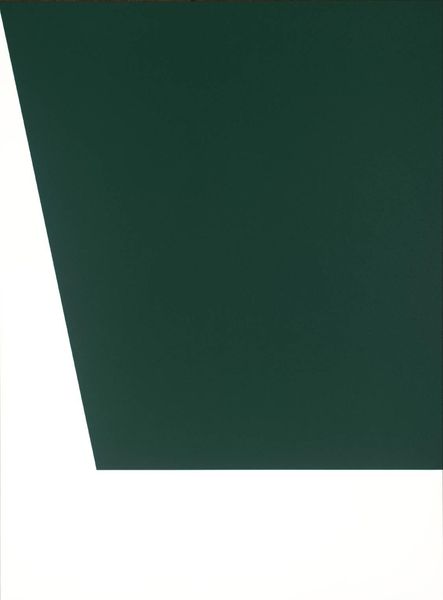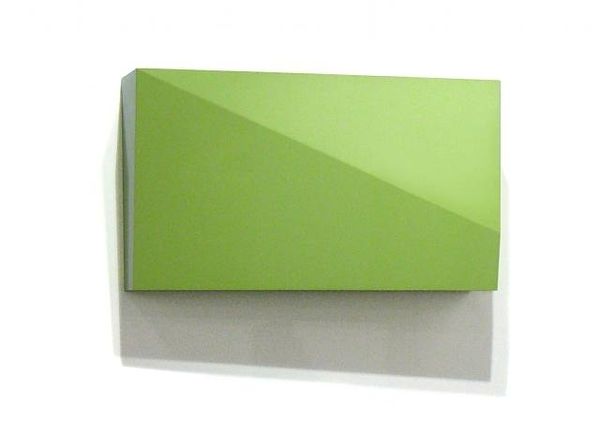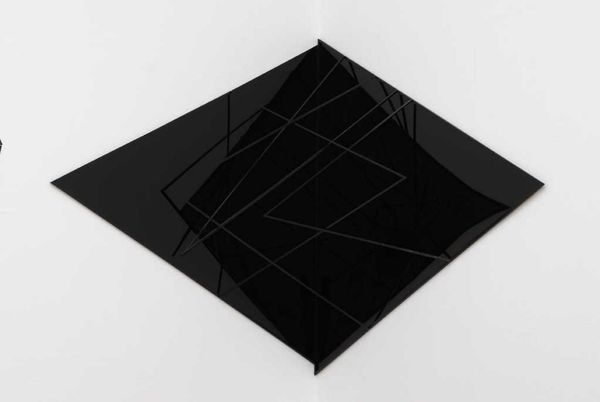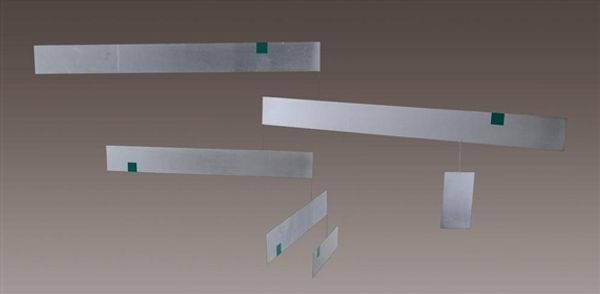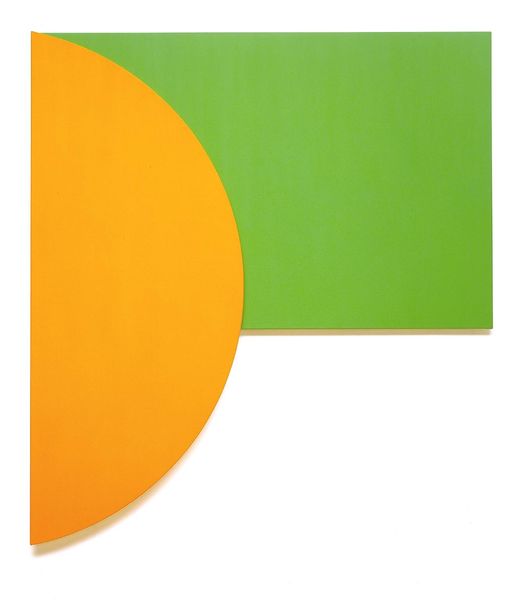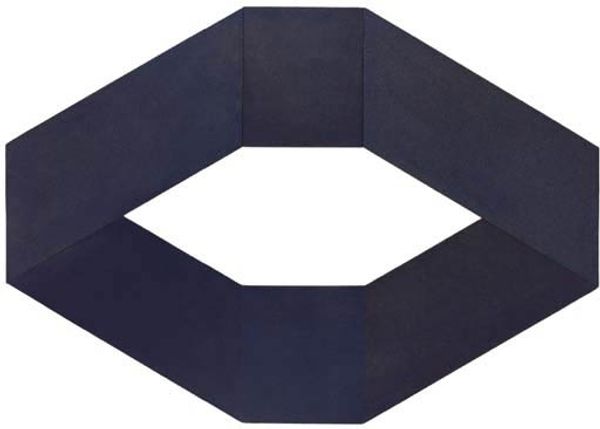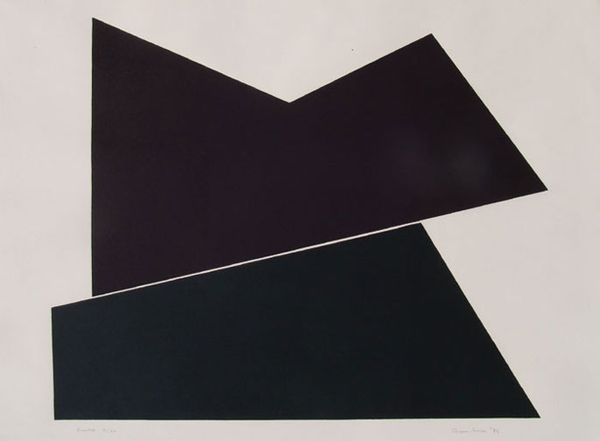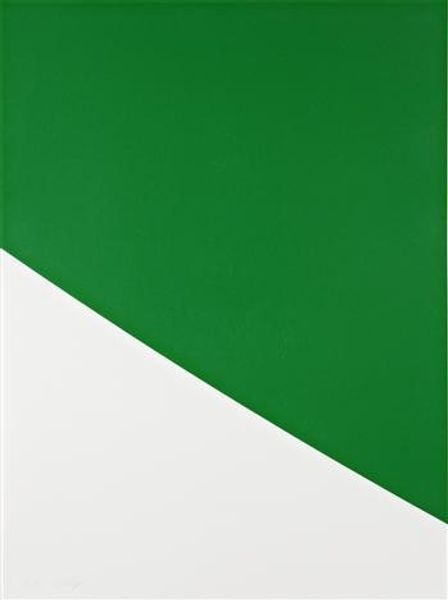
painting, acrylic-paint
#
painting
#
minimalism
#
colour-field-painting
#
acrylic-paint
#
geometric
#
abstraction
#
pop-art
#
hard-edge-painting
Copyright: Ronald Davis,Fair Use
Curator: At first glance, it appears to be a portal, a very green, very still one. Editor: And a sign of its time, quite literally. Ronald Davis painted this acrylic on canvas abstraction, titled "Green Skew," back in 1966. It epitomizes the hard-edge and color field painting movements gaining traction then. Curator: I see. The composition definitely commands your attention. What kind of symbolic weight do these shapes carry? That sharp, jutting form and intense verdant color give it almost an aggressive feel, but then, the receding lighter square in the center almost serves as an escape. It feels unresolved. Editor: It speaks volumes, really, about the rise of minimalism and pop art’s influences at the time. Here's this pristine surface with this almost mechanical reproduction of color, very cool and impersonal, almost diagrammatic. Think about the socio-political context too. The Vietnam War, protests and counter-culture movements… Art, in response, was both implicated and implicated itself from broader issues by delving deep into formalistic explorations, almost retreating into its own pure, self-referential world. Curator: It does have that feel of… removing itself. Yet the choice of green itself feels potent, even deliberate. Green can be growth, envy, nature, decay…all at once. Is Davis perhaps pointing to nature under the hard, unyielding surface of modern construction, perhaps hinting at its instability? Editor: That’s astute, although he would not have directly acknowledged such overt symbolism. The prevailing sentiment among hard-edge painters was toward pure abstraction, free from symbolic interpretation. They were concerned with surface, line, and the interaction of color above all else. This canvas is, quite literally, about paint, form, and surface, reflecting and shaping a specific visual culture. Curator: Which in itself is fascinating; consciously denying symbolism still informs a symbol, doesn't it? Like refusing a mirror, but knowing you have a reflection. The "Green Skew", while overtly simplistic, evokes complexities precisely because it denies offering them easily. Editor: Indeed. And I think it pushes us, compels us to investigate not just what is presented, but why it's presented that way at that moment.
Comments
No comments
Be the first to comment and join the conversation on the ultimate creative platform.
